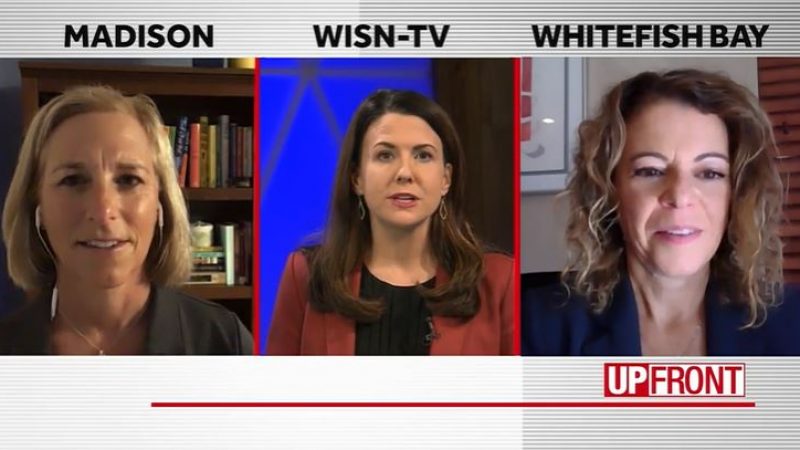Two female Wisconsin Supreme Court justices remembered Ginsburg as a fighter for gender equality and a trailblazer for women in the law.
“She leaves a legacy to all of us. She was a fighter for equality, for women’s rights in a time where women were not able to be leaders in the profession of the law,” Justice Rebecca Dallet said in an interview aired Sunday on “UpFront,” produced in partnership with WisPolitics.com.
“She really set the stage for us, for women like myself and Justice (Jill) Karofsky to be able to be in the profession we are in, to be able to be sitting where we are as Supreme Court justices,” Dallet said.
“Her legacy is going to last far and wide,” Karofsky said in the same interview.
>> WisPolitics is now on the State Affairs network. Get custom keyword notifications, bill tracking and all WisPolitics content. Get the app or access via desktop.
Karofsky noted that Ginsburg completed law school and finished first in her class while raising a toddler.
“Once you see someone do what she did, you know that you can do it too,” Karofsky said.
Also on the program, Assembly Speaker Robin Vos, R-Rochester, discussed the task force he announced to study racial disparities and policing reforms in the wake of the police shooting of Jacob Blake in Kenosha.
Vos said lawmakers did not take up Democratic Gov. Tony Evers’ bills in special session because “they had no bipartisan conversations.”
“He’s chosen to go the partisan route, where he drafted a bunch of bills and said, ‘Here, do something with these,'” Vos said.
Vos said his task force has the ability to bring together both sides, by having GOP Rep. Jim Steineke, of Kaukauna, and Dem Rep. Shelia Stubbs co-chair it.
Vos said almost 200 people have applied to be part of the task force, and they are currently going through the applications “to choose people from all walks of life to talk about the issues that are before us.”
“They’ll have hearings, and at the end, my hope is we have a consensus on a bipartisan package and do it in a way that is totally opposite of the partisan appetite that Gov. Evers seems to have to make everything political, as opposed to saying ‘How do we bring people together to actually get something done?'” Vos said.
Stubbs, of Madison, said there are “critical reforms that we must tackle that deals with racial disparities.”
Stubbs expressed optimism that the task force could do something to address racial disparities and policing reform.
“One of the things, the reason that I am hopeful is because I’m at the table,” Stubbs said. “I’m a proven leader, I have a lot of experience, I champion a lot of disparity work, and that is the voice that I’m going to bring in that room.”
Stubbs said the task force should start by looking at the nine bills Evers offered. The package includes bills on police use of excessive force, racial profiling and allocation of money for grants to violence-prevention organizations.
Stubbs said there would have to be give and take as part of the process.
“Let me be clear. There will be compromises. There will be negotiation. No one is walking out of that room in the hundred percent. But what’s really important in this work is, we are going to check our politics at the door,” Stubbs said.
See more from the program:
http://www.wisn.com/upfront



